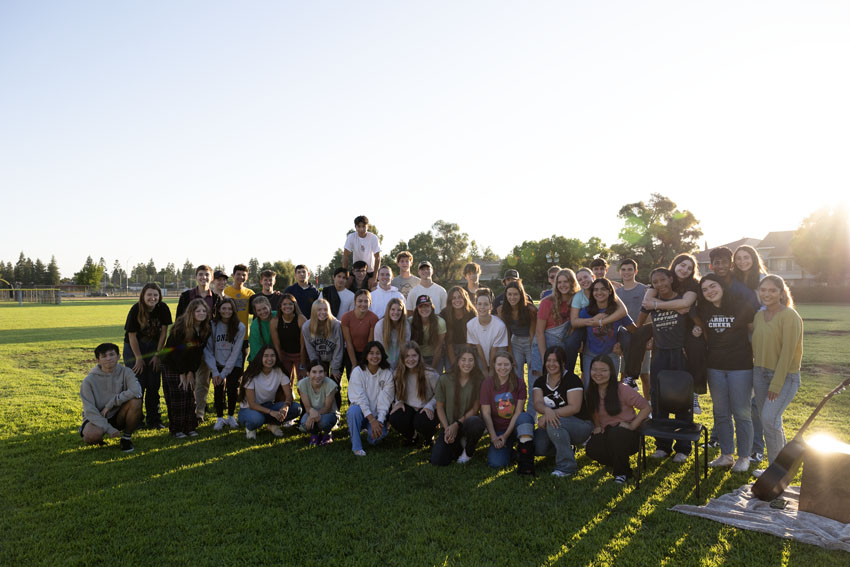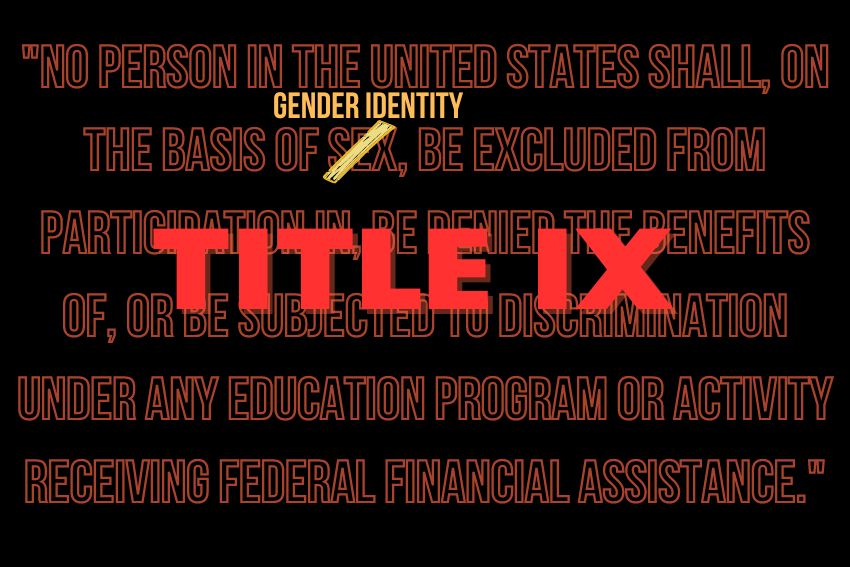Influencer holds strong impact over ignorant media consumers

Anti Semitism has made a powerful resurgence in today’s society with a rise of hate speech and anti-Jewish conspiracy theories aggravated by social media. In recent news, American award winning rapper, producer, and fashion designer Kanye West, now known as Ye, has been criticized for his repeated use of intolerant rhetoric across media platforms resulting in the removal from branded partners and other cancellations. These incidents, combined with the uprising of other anti-semitic speeches and violent acts, serve as a reminder that the fight against antisemitism must continue to be addressed.
Highly publicized stories across media propelled Kanye West’s ideas to his millions of followers causing concern over the strength of his influence. This begs the question: When does influence become indoctrination?
Public downfall of Ye
Beginning with an Oct. 6 statement on Fox News with Tucker Carlson, West makes multiple statements about the black race being the true Jews.
“When I say Jew, I mean… who the people known as the race Black really are.”
The infamous tweet, “Going death con 3[sic] on Jewish people,” followed two days later which began a series of interviews solidifying his extremist beliefs.

Most notable interview West gave was InfoWars with Alex Jones, prominent conspiracy theorist, Dec. 1. Outrightly stating: “I like Hitler.” Jones, attempts to turn the statement around by asking if Kanye, as a designer, was into Nazis because of their well designed uniforms. Kanye doubled down with his previous statement by saying, “There’s a lot of things I love about Hitler, a lot.”
The conversation descended exponentially into an awkward banter of love for the Nazis with little regard to Jewish sentiment. These comments helped justify ideals of radical anti semitic groups like White Lives Matter, Goyim Defense League, and many Islamist anti semitic groups. The crescendo of West’s social unraveling was his offensive Dec. tweet blending the Star of David with a Nazi swastika causing his ban from Twitter for inciting violence. (West is still banned.)
Over 30.6 million followers with an unprecedented growth after the controversial tweeting saga, his influence is heard and he is only one person out of many with a similar point of view.
Founding director of the Julis-Rabinowitz Program on Jewish and Israeli Law at Harvard University, Noah Feldman advises todays influential youth to think for themselves by questioning the validity of the information.
“Ask yourself, is there any evidence in support of this claim?” Feldman said. “Is there any data in support of this claim? Have I ever seen or experienced anything in my real life that would support this extreme view?”
More and more we see today’s generation accused of short attention spans, too much screen time and apathy towards world events. There is danger in only being a consumer of information with a lack of media literacy which is why it’s important to evaluate the veracity behind statements.
 West’s beliefs may stem from a popular economic conspiracy theory. While there may be some truth to this theory in the financial aspect, it can be misleading regarding its portrayal of Jewish people. The conspiracy centers around Blackrock and Vanguard, two trust companies that appear to hold monopolies on major industries, including food, media, banking, and technology. Together, the companies possess over $20 trillion in assets, which is three-quarters the size of the US economy. Although they cannot own all their subsidiaries outright, they are the majority stockholders in several major banks (JPMorgan Chase, State Street, Bank of America, Northern Trust, T Rowe Price, Blackrock), food and drink companies (Coca cola, Pepsi, Kelloggs, KraftHeinz, etc…), news media outlets (Fox, CBS, CNN, USA Today), and tech companies (Microsoft, Apple, Google, Nvidia, Facebook (now meta), Intel), including each other’s companies.
West’s beliefs may stem from a popular economic conspiracy theory. While there may be some truth to this theory in the financial aspect, it can be misleading regarding its portrayal of Jewish people. The conspiracy centers around Blackrock and Vanguard, two trust companies that appear to hold monopolies on major industries, including food, media, banking, and technology. Together, the companies possess over $20 trillion in assets, which is three-quarters the size of the US economy. Although they cannot own all their subsidiaries outright, they are the majority stockholders in several major banks (JPMorgan Chase, State Street, Bank of America, Northern Trust, T Rowe Price, Blackrock), food and drink companies (Coca cola, Pepsi, Kelloggs, KraftHeinz, etc…), news media outlets (Fox, CBS, CNN, USA Today), and tech companies (Microsoft, Apple, Google, Nvidia, Facebook (now meta), Intel), including each other’s companies.
However, it’s important to note that blaming all Jewish people for this issue is not the correct approach. Todays conspiracy theorists often target Jews because Blackrock’s CEO, Larry Fink, is an Ashkenazi Jew. This economic and social problem should be addressed without scapegoating a particular group of people.
As Director Feldman states, “conspiracy theories make you feel momentarily better because in a complicated an confusing world, they suggest that there is some order to it, but on closer examination, the world is just actually more complicated than that.”
It’s important to acknowledge that, although appearing to have ownership over various companies due to their primary shareholder status, Blackrock and Vanguard have faced criticism from their own so called subsidiaries for the overwhelming influence which comes with being a primary shareholder in this amount of companies.
For instance, CNN has published an article that examines the power these two companies wield over financial markets and corporate priorities in America. Additionally, news sources like Fox and CNN hold vastly different ideologies. Therefore, while Blackrock and Vanguard may possess a significant monetary percentage of these companies, the objectives and ideas promoted by the subsidiaries do not seem to be directed by the parent companies.
It’s worth noting that the idea of Jews ruling the world didn’t originate in the 21st century with Vanguard and Blackrock. In fact, it primarily stems from a book called “Protocols of the Elders of Zion,” written in 1903 by a Russian religious writer seeking to depict Jews as conspiring against the country. The book was quickly discredited, with the London Times exposing its blatant plagiarism of a French political satire that didn’t even mention Jews, called “Dialogue in Hell Between Machiavelli and Montesquieu” (1864). Nevertheless, during WWII, the Nazis, before the genocide of six million Jews, widely published and distributed the book as propaganda to turn public opinion against Jews.
Media’s Authoritative Hold on Citizens
Dr. Becirbegovic, a Professor at California Fresno State University specializing in German history, genocide and human rights, believes it’s not just the Jewish community’s responsibility to educate and promote peace; the resurgence of antisemitism in America is all of our responsibility.
“While popular media and pop influences can be damaging, such as the careless and deeply offensive sentiments that Kanye West and other influencers have put out into the realm of social media” Becirbegovic said. “We should not be so quick to condemn all popular media influences.”
A photo of an emaciated Fikret Alic was seen around the world in 1992. Now he and other Bosnian survivors who were imprisoned in concentration camps are taking legal action in the wake of comments made by denialists on Serbian television last year https://t.co/SLAIBwUGgV. pic.twitter.com/YClif2OLva
— Remembering Srebrenica (@SrebrenicaUK) January 6, 2022
Media holds a lot of power, which is not necessarily only positive or negative, its outcome is based on the motive of the user. In fact, a photograph, which was widely shared on social media and on the news, saved Dr. Amilia Becirbegovic and many other Bosnians in the 1990s Bosnian genocide. Her survival story exemplifies the power media can hold.
Becirbegovic is from a small city in Bosnia named Prijedor with a population of about 89,000 people. During the 1992 genocide, Bosnian Muslims (also called Bosniaks) were forced to flee to Germany. By the end of the genocide in 1995, the Bosniak population in Prijedor had been reduced by over 50 percent.
The genocide was largely fueled by fear narratives and other propaganda circulated in newspapers, on television and other popular media outlets; However, it was also media that saved the people of Bosnia. An image published by Britain’s Independent Television news of a tortured and starving Bosnian inmate named Fikret Alic was widely publicized in magazines and newspapers like TIME and The Daily Mail, labeling the atrocities as “The Holocaust of 1992.” This image brought to light the atrocities occurring in Bosnia and fostered international outrage, eventually leading to the end of the concentration camps. That singular image played a vital role in the end of the genocide.
In today’s world, where technology and media have immense power, we need to be more vigilant and discerning when it comes to dangerous and hateful ideas. Putting an end to bigotry is not just the responsibility of one group, but of everyone. The question is, should news sources provide a platform for individuals like Kanye West to express their bigoted beliefs? Can we trust the public to recognize these ideas as baseless and unfounded, especially as a younger generation emerges? We must remember that the small voice of hate can become amplified and dangerous when given the powerful outreach of media, particularly news sources.
To read more from the feather, read Noah Feldman speaks at San Joaquin Valley Town Hall or ABC 30 Recap












Emma Calderon • Mar 6, 2023 at 10:39 am
Great job Asa, this is an amazingly written article which correctly highlights the resurgence of antisemitism in an unbiased manner.